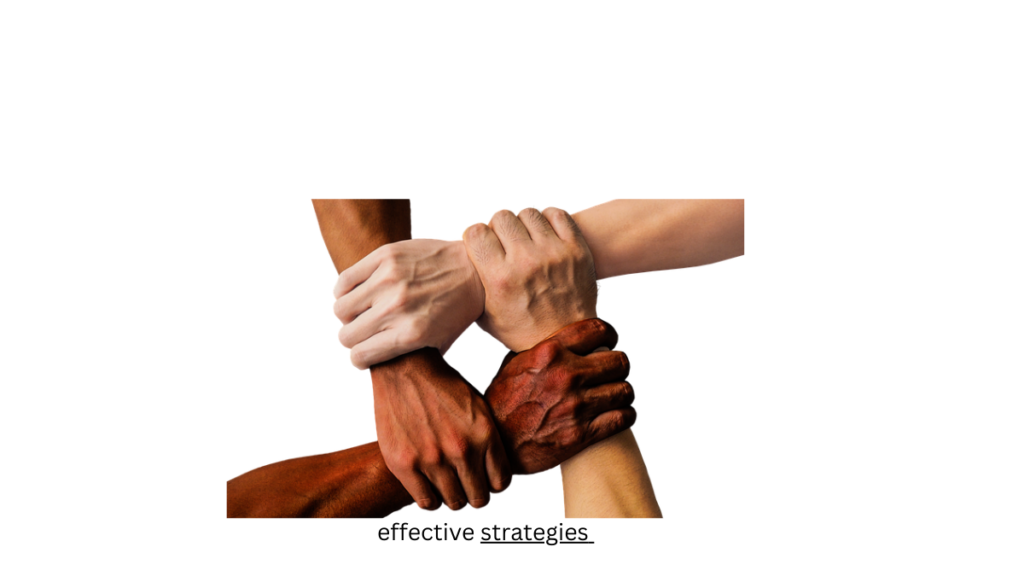Introduction:
Managing Emotions: A Guide to Navigating Uncontrollable Situations with Grace

Life is a journey filled with unpredictable twists and turns, often presenting us with situations that seem beyond our control. These moments can evoke a wide range of emotions, leaving us feeling overwhelmed and powerless. However, by mastering the art of managing our emotions, we can transform these challenges into opportunities for growth and resilience. In this article, we will delve into effective strategies for dealing with uncontrollable situations, helping you regain a sense of control and inner harmony.
How can effective strategies for dealing with uncontrollable situations help individuals regain a sense of control and inner harmony?

1. Acknowledge Your Feelings: The first step in managing emotions during challenging times is acknowledging what you’re feeling. It’s okay to experience frustration, anxiety, or uncertainty. By accepting your emotions without judgment, you lay the foundation for healthier coping mechanisms.
2. Practice Mindfulness: Mindfulness involves staying present in the moment without judgment. Engaging in mindfulness techniques, such as deep breathing, meditation, or grounding exercises, can help you stay centered when faced with situations that trigger stress.
3. Reframe Your Perspective: Shifting your perspective can significantly impact how you react to uncontrollable situations. Instead of fixating on what you can’t control, focus on what you can influence. This shift in mindset empowers you to take proactive steps toward finding solutions.
4. Seek Support: You don’t have to navigate challenging situations alone. Reach out to friends, family, or a mental health professional to discuss your feelings and gain insights from different perspectives. Social support can provide comfort and help you see situations from new angles.
5. Channel Your Energy: Transform negative emotions into constructive actions. Engage in activities that bring you joy and a sense of accomplishment. Whether it’s pursuing a hobby, exercising, or volunteering, redirecting your energy can alleviate stress and boost your mood.
6. Develop a Resilient Mindset: Resilience is the ability to bounce back from adversity. Cultivate a resilient mindset by focusing on your strengths and past successes. Remind yourself of challenges you’ve overcome, reinforcing your belief in your ability to handle difficult situations.
7. Embrace Learning Opportunities: Uncontrollable situations often hold valuable lessons. Instead of viewing setbacks as failures, see them as opportunities for growth. Consider what you can learn from the experience and how it can contribute to your personal development.
8. Practice Self-Compassion: Be kind to yourself during challenging times. Treat yourself with the same compassion you would offer to a friend. Avoid self-criticism and practice self-care through relaxation, nourishing activities, and positive self-talk.
What points should be worked in making effective strategies to deal with uncontrollable situations, so that the situation can be controlled?
Creating effective strategies to deal with uncontrollable situations requires a comprehensive approach that encompasses both mindset and practical actions. Here are some key points to consider when developing strategies to regain a sense of control in challenging circumstances:

- Mindset Shift: Start by recognizing that while you can’t control everything, you have the power to control your reactions and attitudes. Cultivate a mindset that embraces adaptability and resilience.
- Acceptance: Acknowledge that some situations are beyond your control. Practice acceptance of what you cannot change to free up mental and emotional energy for what you can influence.
- Focus on What You Can Control: Identify the aspects of the situation that you do have influence over. Direct your energy towards those elements to make a positive impact and create a sense of empowerment.
- Prioritize and Plan: Determine which factors are most crucial to address. Develop a clear plan that outlines steps you can take to address these aspects, no matter how small or incremental.
- Break It Down: Divide the situation into smaller, manageable tasks. Tackling smaller tasks can create a sense of accomplishment and momentum, helping you regain a feeling of control.
- Information Gathering: Seek information and knowledge about the situation. Understanding the circumstances can help you make more informed decisions and alleviate uncertainty.
- Set Realistic Goals: Define achievable goals that align with your priorities. Setting unrealistic expectations can lead to frustration and a sense of helplessness.
- Time Management: Allocate time to work on specific tasks related to the situation. Establishing a routine can provide structure and make the situation feel more manageable.
- Practice Self-Care: Taking care of your physical and emotional well-being is essential during challenging times. Engage in activities that help you relax, recharge, and maintain a positive outlook.
- Seek Support: Reach out to friends, family, or professionals for support. Sharing your concerns and seeking guidance can provide fresh perspectives and emotional relief.
- Mindfulness and Breathing Techniques: Practice mindfulness and deep breathing to stay grounded in the present moment. These techniques can help reduce anxiety and enhance your ability to make clear decisions.
- Positive Self-Talk: Challenge negative thoughts and replace them with positive affirmations. Positive self-talk can boost your confidence and enhance your problem-solving skills.
- Learn from the Experience: Embrace the opportunity to learn and grow from the situation. Reflect on the lessons you’ve gained and how they can contribute to your personal development.
- Flexibility: Be open to adjusting your approach as the situation evolves. Flexibility allows you to adapt to new information and circumstances.
- Celebrate Progress: Acknowledge your achievements, no matter how small. Celebrating progress reinforces your sense of control and motivates you to continue taking steps forward.
By integrating these points into your strategies for dealing with uncontrollable situations, you can navigate challenges with a greater sense of empowerment, resilience, and inner harmony. Remember that while you may not control external circumstances, you have the power to shape your responses and outcomes.
Conclusion:
Managing emotions when faced with uncontrollable situations is a skill that can empower you to navigate life’s uncertainties with grace and resilience. By acknowledging your feelings, practicing mindfulness, reframing your perspective, seeking support, channeling your energy, fostering a resilient mindset, embracing learning opportunities, and practicing self-compassion, you can transform challenges into stepping stones toward personal growth and emotional well-being. Remember, you have the innate strength to weather any storm that comes your way.





